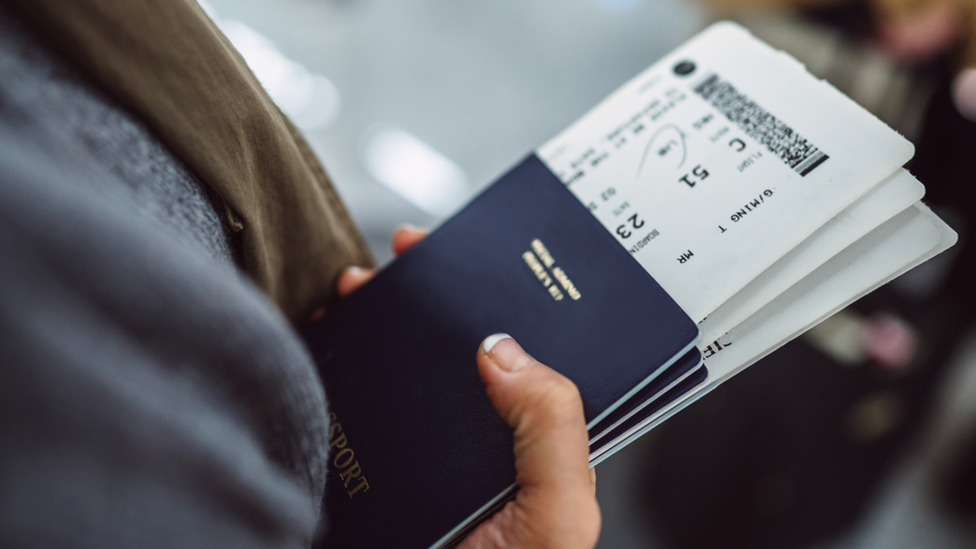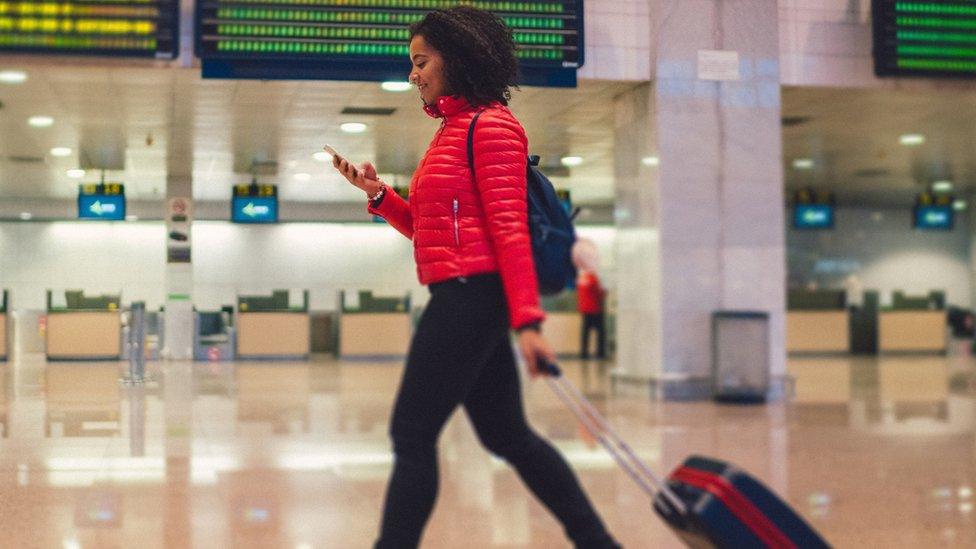Heathrow sees busiest January since start of Covid
- Published
- comments

Heathrow Airport has recorded its busiest January since the start of the pandemic, with 5.4 million passengers travelling through it last month.
The latest figures are still below the six million people that passed through in January 2020, but Heathrow boss John Holland-Kaye said it showed the airport was "back to its best".
But it comes as more than 3,000 workers are to be balloted over strike action.
The Unite union has warned any walkouts could lead to disruption at Easter.
Half-term getaway
Some 17,458 flights are scheduled to depart UK airports during half-term, according to data firm Cirium which tacks flights, but overall, departures remain 19% down compared to the same period in 2019.
Cirium said departures were up 43% on last year's February break. It added this showed the "continued recovery" of the air travel industry, which was grounded during the height of the pandemic.
The Association of British Travel Agents said many tour operators were "expecting a busy half-term as demand for travel continues to return to pre-pandemic levels".
Mr Holland-Kaye added Heathrow's services for school half-term holidays had been "going very well".
Heathrow said its overall passenger satisfaction was now "at or above pre-pandemic levels", with 98% of passengers waiting less than 10 minutes for security last month, which is typically a quieter time of year for UK passengers.

Heathrow said Border Force was trialling using e-gates for children aged 10 and 11 in Terminal 5 over the half-term holiday, as it was also doing at Gatwick and Stansted.
Currently, travellers aged 12 and above with biometric passports can use e-gates to bypass manual inspections when they cross border control.
Last year, thousands of air passengers suffered delays and cancellations across the UK after airports and airlines struggled to recruit enough staff to cope with the surge in demand for international travel following the removal of Covid restrictions.
Airports and airlines cut thousands of jobs at the height of the pandemic, and many workers did not return to the industry due to finding other jobs.
Strike threat
On Sunday, Unite said security guards, engineers and firefighters at Heathrow would begin voting on Friday on whether to strike over pay, after its members rejected a 10% wage increase.
The union said that if workers did strike it would "inevitably cause severe disruption" at Easter.
Thousands of workers across several industries have called for pay rises to keep up with the rising cost of living in recent months. Inflation in the UK, the rate at which prices are rising, is currently at 10.5%.
A Heathrow spokesperson said the airport was "extremely disappointed" by Unite's move and warned if the strike action commenced, the "pay offer will be withdrawn". It said its 10% salary increase offer came at a time the business was making losses.
In December, Border Force staff went on strike for several days, although Heathrow said that disruption had been "successfully managed". Border Force drafted in military personnel and civil servants to cover around 1,000 staff, many of whom are responsible for checking passports, and delays to journeys were reported to be minimal.
Mr Holland-Kaye, who has been chief executive of Heathrow for nine years, announced earlier this month that he would be standing down from the role later this year.
His tenure has included the development of Heathrow expansion plans with a third runway, and navigating changes due to Brexit and the Covid pandemic.
- Published1 August 2023

- Published23 December 2022
